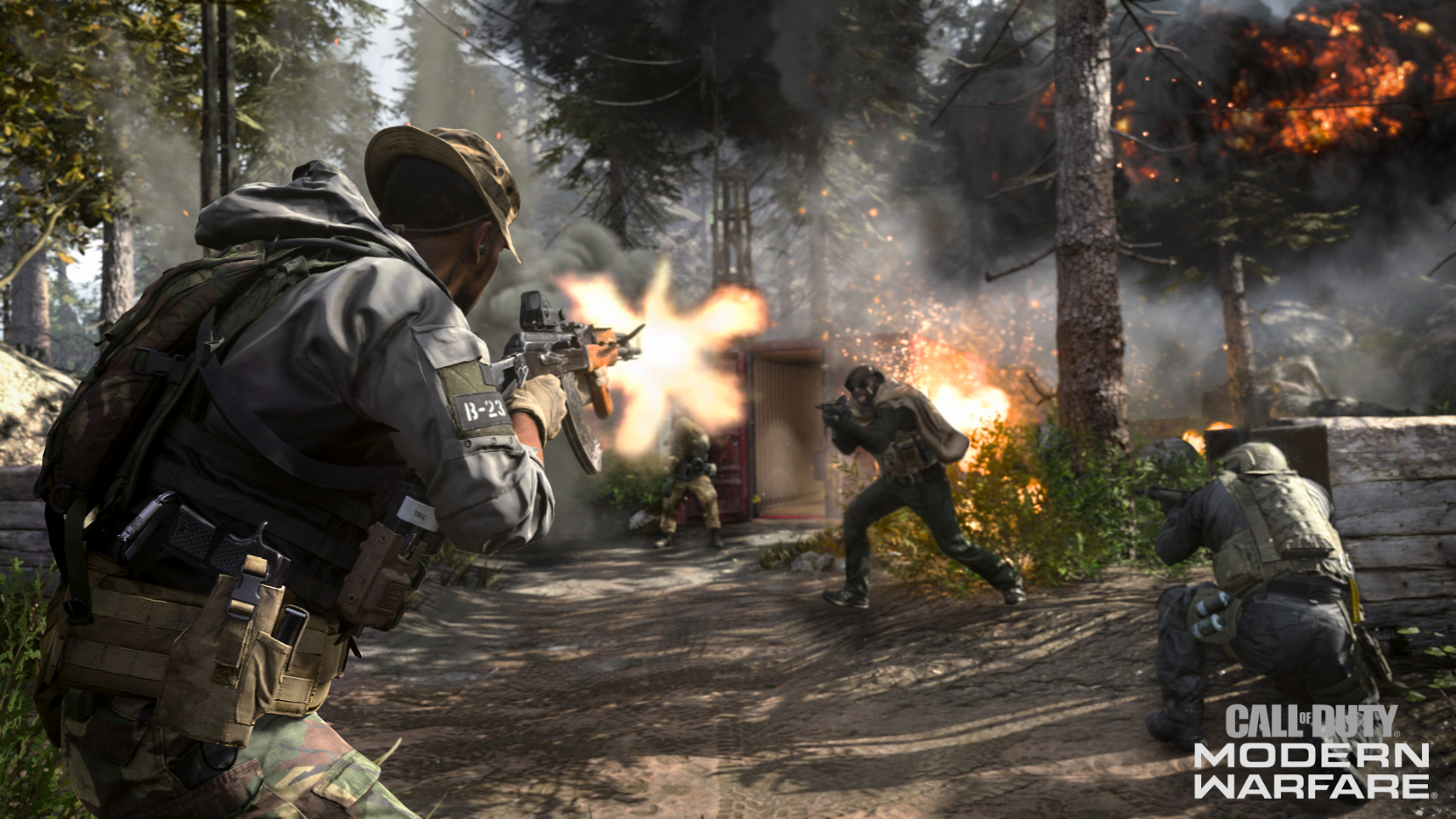Call of Duty: Modern Warfare launched last week and since then there have been a plethora of comedic and badass moments from the multiplayer portion of the game. However, for the single-player portion, there has been controversy surrounding the way some parts of the story have been handled, specifically the Highway of Death inclusion.
Gamespot had an interview with the narrative director, Taylor Kurosaki to ask questions surrounding the intent of the story, and if Infinity Ward feels they handled the direction well.
When asked about the intent behind the narrative of Call of Duty: Modern Warfare, Kurosaki mentions that “our inspiration was from real-world events, and the purpose of the narrative is, frankly, to build empathy,” which echoes the words from an interview earlier this year.
He goes on to explain how players are put into the shoes of a Tier 1 operator going into a combat zone with enemies not in uniform, having the player figure out how they operate with this “imperfect intel”. He continued on saying:
“There are people in the world who are living in conflict zones today who didn’t ask or choose to sign up, they didn’t choose to deploy somewhere over there, the conflict comes to their local town, their families, their communities. And we also wanted to build empathy with those characters that don’t have a choice and have to figure things out on the fly.”

When questioned about the Highway of Death, and how the game changes the American atrocity to it being a Russian attack, a topic that was partly the reason the game found itself review bombed on Metacritic last month, he responds: “I think you could probably find many instances of the words ‘highway of death’ being used in a lot of cases.”
He explains the role the fictional country Urzikstan plays before going on to discuss the protagonists and antagonists.
“We have Russian antagonists and Russian heroes in this game. And again that was our goal. This is not some kind of propaganda or anything like that. This is reporting on what is happening in these conflict zones.”
Gamespot also brings up the close quarters battle which has players clearing out a building with families that aren’t a threat, however, they can be killed. Kurosaki explains:
“These are the concepts that are actually being used in these operations. And the game does tons of heuristics, constantly, when you’re playing in these areas. And if you take action against someone who has proven themselves to not be a threat to you or your team, you will fail. And it’s the game’s way of basically saying: that’s not becoming of a combat operator. But if someone demonstrates themselves as a threat to you, then you need to protect yourself. You need to protect your squad mates and complete this mission.”
He goes on to detail the way the game tries to encourage proper combat operator behavior, stating that in reality, if the player “acted in an unbecoming way, you might be court-martialed, you might be put in prison. The game has its own way of, kind of keeping you on the straight-and-narrow.”
Gamespot brings up more points in the interview, such as the waterboarding scene, and a moment with The Butcher. The entire interview is available in the video above, or in written form.
Call of Duty: Modern Warfare is available on PC, PS4, and Xbox One. If you’re interested in knowing what we thought about it, you can read our review here.
The post Call of Duty: Modern Warfare Narrative Director Talks Controversial Campaign by Ben Bayliss appeared first on DualShockers.
